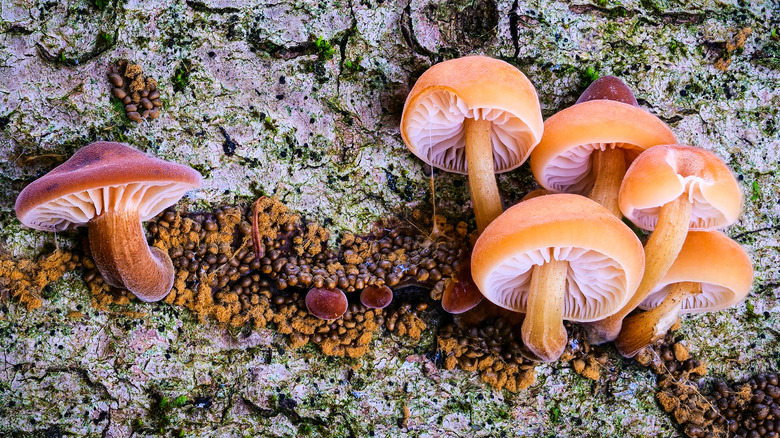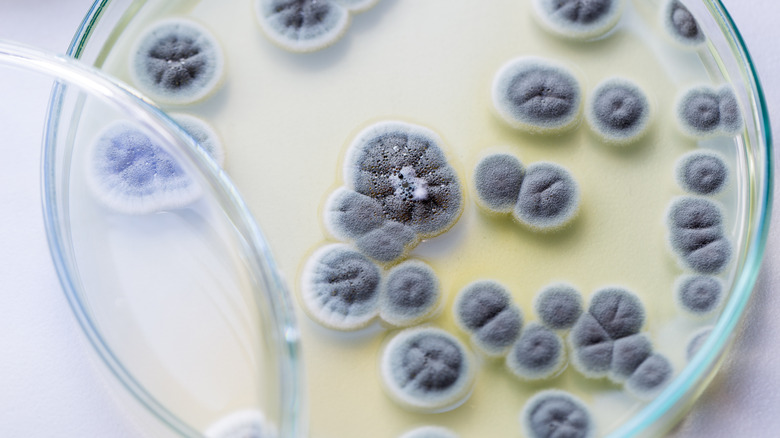The Truth About Plastic-Eating Fungi
As science delves further into the field of mycology, the study of fungi, we are discovering that the oddball lifeforms have more and more beneficial properties to other forms of life on Earth. As Vogue pointed out in February 2021, some experts are tinkering with the possibility that psychedelics like magic mushrooms and other compounds could revolutionize human psychology as we know it. And as Chilean mycologist Giuliana Furci told the BBC, we depend on fungi for everything from medicines to bread to beer. There are even fungi that form an underground "internet of fungus" through which plants can communicate and share nutrients through their roots. "They are fundamental for maintaining the balance, in every sense, in the environment," Furci said.
Several recent discoveries have shown that there are even fungi to help maintain one of the most pressing environmental imbalances currently plaguing Earth: the outrageous amount of plastics we produce, use for extremely short amounts of time, then toss away and never think of again. In the 2010s, scientists started to believe that fungi could be part of the solution to the world's growing waste problem. According to Fast Company, a group of graduate students from Yale University went into the Ecuadorian jungle in 2011 and came home with samples of Pestalotiopsis microspora, the first fungus known to science to not only eat polyurethane, but to do so even in anaerobic (oxygen-free) places like the bottom of a landfill.
Other fungi and bacteria have also been found to eat plastic
The Yale researchers were understandably hopeful in the findings they published in late 2011, and as it would turn out, theirs was merely the first such fungal discovery. Scientists have since found other fungi and even bacteria that also eat plastics and could help solve our pollution problem. Scientists in Pakistan published their discovery that Aspergillus tubingensis also dines on our disposables in the journal "Environmental Pollution" (via Science Direct) in 2017. That study found that a piece of polyurethane film "was totally degraded into smaller pieces" after two months in a liquid medium containing the fungus.
The BBC reported in July 2021 that scientists were exploring several different biological solutions to the problems posed by plastics. The bio-manufacturing company Biohm was working on developing a strain of a fungus that its scientists discovered to have eaten a plastic sponge into a workable solution to plastic waste. Scientists in Scotland, Germany, France, the United States, and elsewhere are looking into how bacteria can also help out. This is all very exciting news, but turning it into scalable, real-world solutions will still be difficult. Nor will fungi and bacteria be a pollution cure-all, experts say. In order to help at all, they will need to be made economically viable, and there is concern about the process' carbon footprint. Though it may still be faint, the news of plastic-eating fungi still shines a light of hope into our environmental future.

